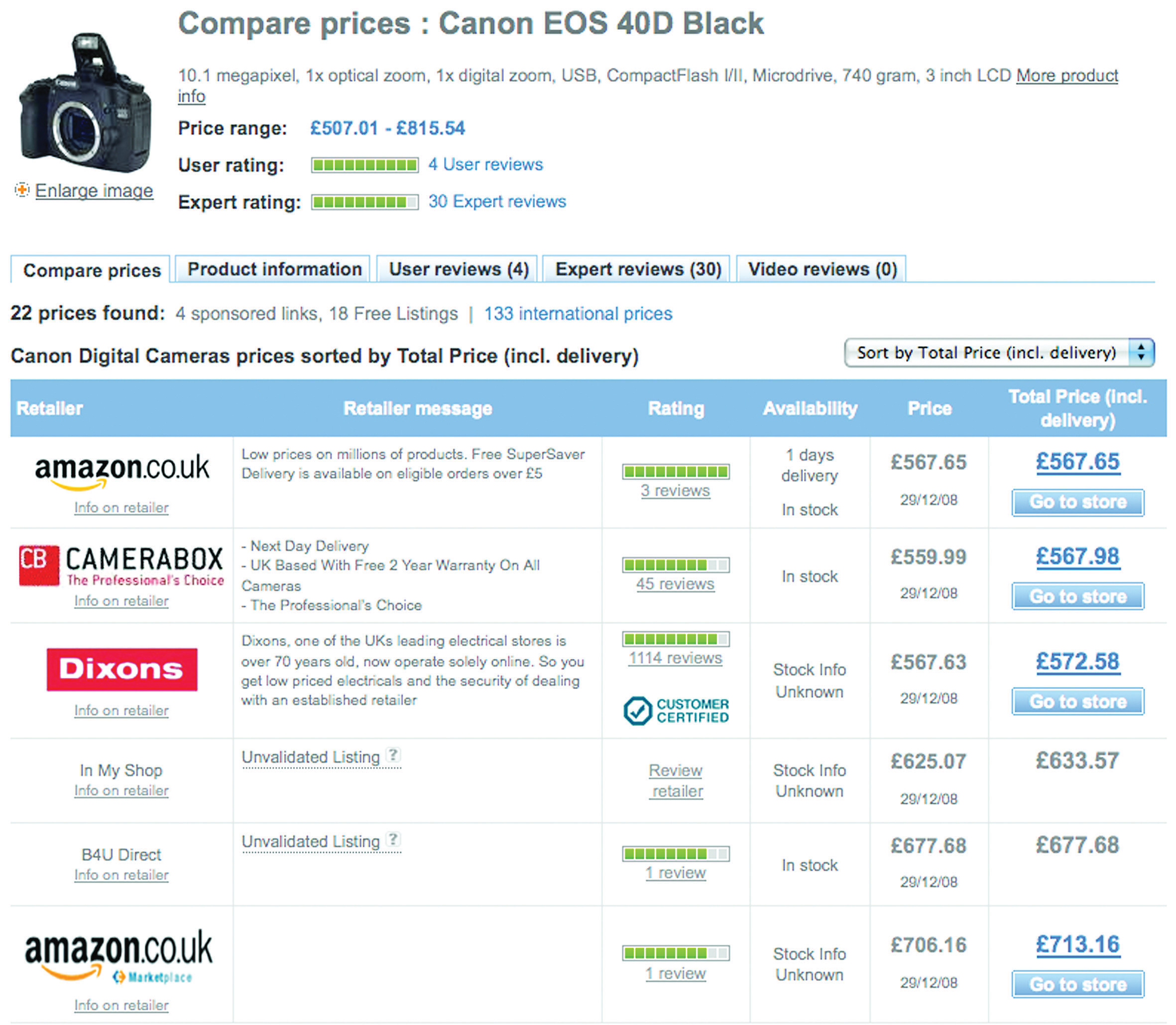This is “Introduction”, section 18.1 from the book Online Marketing Essentials (v. 1.0). For details on it (including licensing), click here.
For more information on the source of this book, or why it is available for free, please see the project's home page. You can browse or download additional books there. To download a .zip file containing this book to use offline, simply click here.
18.1 Introduction
While the Internet was developed as a military project, the World Wide Web was developed as a tool for academics to allow information to be shared freely. This foundation of the Web as an information tool has had profound effects on the markets we transact in.
Consider that consumers are able to research companies and products easily, gathering information to compare prices and service with a few clicks of the mouse. Consumers are also able to share likes and dislikes easily, whether that information is shared with companies or with friends.
Figure 18.1

Services such as PriceRunner allow consumers to research product prices.
Likewise, the Web has an impact on market research. Its foundations in academia make it ideal for secondary research, with reports and data filed, indexed, and available via a few savvy searches. Technology can also be used to easily, and accurately, conduct surveys. The connected nature of the Web also makes it possible to record data about consumers’ online habits.
For example, when researching the penetration of broadband in a particular market, a few Web searches will reveal plenty of sources that can be compared and verified. If a company wants to gauge the demographics of visitors to its Web site, an online survey may be offered to Web site visitors. Third, online reputation management tools allow companies to track consumer sentiment expressed online.
What Is Market Research?
Market research is a process that aids business decisions. It involves systematically gathering, recording, and analyzing data and information about customers, competitors, and the market.
Research can be based on primary data and information or secondary data and information. Primary research is conducted when data or information is gathered for a particular product or hypothesis. This is where information does not exist already or is not accessible and so needs to be specifically collected from consumers or businesses. Surveys, focus groups, research panels, and research communities can all be used when conducting primary market research.
Secondary research uses existing, published data and research as a source of research. It can be more cost effective than conducting primary research, and the Internet opens a wealth of resources for conducting this research. However, the data would have originally been collected for solving problems other than the one at hand, so they might not be sufficiently specific. That being said, secondary research can be useful in identifying problems to be investigated through primary research.
Research can also be classified as qualitative or quantitative. Qualitative research can be classified as exploratory. Qualitative research aids in identifying potential hypotheses, whereas quantitative research puts hard numbers behind these hypotheses. Qualitative research seeks to find out what potential consumer perceptions and feelings exist around a given subject. This research can often be used to advise the design of quantitative research, which relies on numerical data to demonstrate statistically significant outcomes.
The Internet is a useful tool for both primary and secondary research and can be used to gather both qualitative and quantitative data. In fact, the communities on the Web can be viewed as one large focus group, regularly and willingly sharing their opinions on products, markets, and companies. Today, organizations transacting online have a wealth of research information freely available to them, as well as sophisticated tools for gathering further data.
Market research should produce information that leads to actions.




